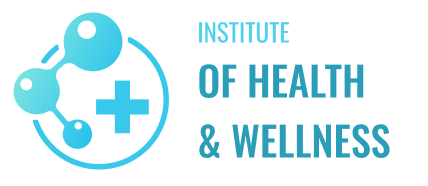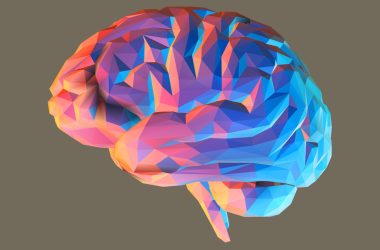Interest in psychedelics is surging, fueled by growing research suggesting they have a place in treatment of conditions like depression and post-traumatic stress disorder. But regulatory challenges loom. The nation’s first program to sell psychedelic drugs to the public opened in Oregon in June. Several states are funding clinical trials and considering new laws and regulations that would loosen decades-long restrictions on the drugs’ manufacture and distribution. Those plans may face federal regulations that classify psychedelics as schedule I controlled substances, with no therapeutic value. The Gazette spoke with Mason Marks, a visiting professor at Harvard Law School who leads the School’s Project on Psychedelics Law and Regulation at the Petrie-Flom Center for Health Law Policy, Biotechnology, and Bioethics. Marks wrote about the potential for collision between state and federal laws in a December opinion piece in the Journal of the American Medical Association.
Why do some see psychedelics as such a promising area for treatment?
Psychedelics are exciting because there’s a need for new treatment options, and people often report rapid, dramatic results — though it’s important to acknowledge that some may have had negative experiences or received no benefit. In the 1990s and early 2000s, people tried to get psychedelic research that had been ongoing in the 1950s and ’60s started again, but it’s taken decades to transform a trickle of clinical research into a stream. Today, there’s growing enthusiasm; laws are evolving; and more funding is being unlocked.
For what conditions are psychedelics potentially effective? And do we know what’s going on? Is the brain being rewired, in some cases after one treatment?
Some do experience dramatic results after one session, but that may not be typical. In clinical trials, it’s common to have multiple treatment rounds. Treatment-resistant depression and PTSD are two of the most studied conditions, but there’s a variety for which research is ongoing or getting underway. These include various addictions. For instance, there’s promising research on using psilocybin for smoking cessation. There’s also early research on pain-related conditions such as cluster headaches and even bipolar disorder.
We don’t fully understand the therapeutic mechanism. We know which brain receptors psychedelics activate, but we don’t know how that translates into clinical benefits. One thing I find striking is reports of people with addiction who consumed psilocybin and realized they had bad relationships with substances such as alcohol or tobacco. They knew that their habits were harmful, but psychedelics appeared to give them greater insight and ability to make positive changes. Some compare ingrained behavioral patterns and their underlying brain circuits to well-worn tracks in the snow. To extend that analogy, psychedelics provide a fresh layer of snow, allowing people to form new pathways and behaviors. In animals, psychedelics enhance neuroplasticity, the ability of brain tissue to form new connections. But especially in humans, the science is in its infancy.
You wrote in JAMA about potential problems ahead, as states make psychedelics available to the public without FDA approval. What’s going on that might run afoul of federal law?
There are some state-regulated programs that dovetail with federal laws. Texas, Connecticut, and Washington state are working within FDA and DEA regulations by allocating funds to psychedelic research, which is sanctioned by these federal agencies. But other state programs conflict with federal laws. Oregon’s psychedelic market, which opened for business last summer, regulates the production, sale, and supervised administration of psilocybin, which some call “supported adult use.” This program conflicts with federal laws. Colorado is setting up a comparable program for 2025. Other states might approve similar projects this year.
It’s understandable that states might want to regulate psychedelics and how they’re administered. We’ve seen similar efforts with medical- and adult-use cannabis. Those state programs also conflict with federal drug laws. But for several years, since the 2013 Cole Memo [from the Justice Department saying the agency would halt enforcement of federal marijuana offenses in states where it was legal], there’s been an uneasy peace between state cannabis programs and federal agencies like the DEA. Consequently, some assume federal agencies will not interfere with state-regulated psychedelic programs. That might not be a safe assumption. Oregon and Colorado are choosing to regulate psychedelics very differently than cannabis, which is where problems could arise.
“One thing I find striking is reports of people with addiction who consumed psilocybin and realized they had bad relationships with substances such as alcohol or tobacco. … psychedelics appeared to give them greater insight and ability to make positive changes.”
Mason Marks
When you talk about this “uneasy peace,” it sounds like the peace is at the sufferance of the DEA since federal law supersedes state law. Are there limits to the federal restraint?
Federal agencies retain discretion to crack down on states that regulate schedule I controlled substances. But in recent years, they’ve largely chosen not to intervene. In general, state drug laws can conflict with federal laws such as the Controlled Substances Act to an extent, but at some point there’s a threshold beyond which federal agencies might intervene.
Might that potentially come as a result of patient use in the healthcare system?
Yes. Under the federal Controlled Substances Act, schedule I drugs [like cannabis and psychedelics] have no currently accepted medical use. One factor that might determine whether federal agencies intervene is the extent to which states blend psychedelics with conventional healthcare.
Consider medical cannabis, where there’s little involvement of healthcare professionals. They write “recommendations,” not “prescriptions,” regarding cannabis, and there’s no cannabis on site. Doctors never see it, never handle it. Patients go to cannabis dispensaries, not healthcare facilities or pharmacies, to buy cannabis products. So, there’s distance between healthcare and schedule I substances.
But in state-regulated psychedelic programs, including Oregon’s supported adult-use model, healthcare providers are more involved. They’re sitting with clients for five or six hours while they experience the effects of psychedelics. They may be holding clients’ hands or touching their shoulders, providing “limited reassuring touch.” So, state psychedelic programs are blending healthcare and schedule I substances far more than marijuana programs, and that’s potentially problematic.
It’s notable because last month the DEA warned Georgia pharmacists not to dispense medical marijuana, which suggests the uneasy peace between state and federal cannabis regulators could be weakening. Georgia’s unusual law allows pharmacies rather than dispensaries to provide cannabis, which is likely what triggered the warning. Something about Georgia’s blending of healthcare with schedule I drugs provoked the DEA, and that doesn’t bode well for state psychedelic programs.
Colorado may be most at risk. Oregon’s law creates barriers between psychedelics and healthcare. Clients don’t need a medical diagnosis or prescription. Facilities that dispense psilocybin are prohibited from diagnosing or treating health conditions. They can’t make medical claims or operate within licensed healthcare facilities. Colorado’s law lacks Oregon’s restrictions, and state officials appear set on blending psychedelics with healthcare. They’ve even proposed paying for related services with state and federal Medicaid funding.
Like Georgia’s use of pharmacists to dispense medical cannabis, this blending of psychedelics and healthcare could provoke a federal response. Even Oregon’s program may not be immune. Despite its legal restrictions, some Oregon businesses and lobbyists advertise the program as a therapeutic solution for mental health conditions, which could trigger a response from the FDA and Federal Trade Commission. Both agencies regulate false or misleading medical claims.
Is this something consumers should watch out for or just a potential problem because of how federal law is written?
The potential for consumer confusion may be concerning. Because actors in Oregon and Colorado frame the programs as therapeutic, consumers might mistakenly believe they’re receiving FDA approved treatments.
Apart from potential confusion, blending schedule I drugs with healthcare is very expensive for businesses, clients, and taxpayers. When voters approved Oregon’s psilocybin program in 2020, it had been promoted as being self-sufficient by 2023. To raise revenue, the health authority set business license fees high. Facilities pay $10,000 per year and practitioners who supervise clients pay $2,000 annually. Nevertheless, last year the program ran out of money. The health authority asked lawmakers for over $6 million to fund the program for two years but only received $3.1 million.
So, states like Oregon and Colorado are funneling millions of dollars into heavily regulated psychedelic programs each year. Because they are very expensive, potentially misleading, and possibly unsustainable, they might not be the best use of public funds.
Is there a fix for this?
When crafting state psychedelic laws, creating clear boundaries between healthcare and schedule I substances will help. But state agencies must enforce those boundaries.
More importantly, we need new models of psychedelic regulation that reduce costs, confusion, and conflicts with federal laws. Decriminalizing psychedelics is one possibility. Some countries, two states, and at least 20 U.S. cities have taken this approach to some extent.
Regulating psychedelics more like cannabis is another option. Both are less expensive and conflict less with federal law.
Middle paths might also be pursued. For instance, states could issue permits, allowing consumers to purchase psychedelics after receiving safety information. Alternatively, states could license psychedelic practitioners to provide services in a variety of settings instead of mandating that they occur in expensive, heavily regulated facilities. I don’t mean to support a specific model. But we need deeper discussion of diverse policy options. Regardless of the approach, educating the public and building support systems for people seeking psychedelic experiences is important.





